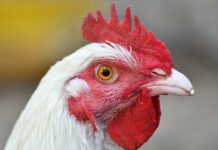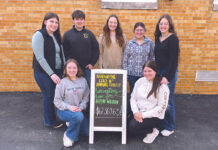There is a sense of complacency about food safety: Our food supply is safe; I’ve never gotten sick.
But the recent spinach/E. coli crisis illustrates the fragility of that perception. There were 25 Ohioans and 10 Pennsylvanians sickened in that particular outbreak.
Let me throw more numbers at you: The Centers for Disease Control
estimates 76 million people get sick each year from foodborne illness and more than 300,000 are hospitalized. And 5,000 Americans die each year from foodborne illness.
Even with all the protection measures in place, people die.
That’s why I have a real problem with those who clamor for the “right” to be able to buy raw milk in Ohio.
Pasteurization has been used to kill germs in milk since the late 1800s. And there’s a reason. Several reasons, actually. Campylobacter, E. coli, listeria, salmonella, to name just a few.
I have another reason: His name is Justin.
When my son Jon was 4 or 5, a playmate and fellow preschooler contracted E. coli from an unpasteurized drink. So did his older sister. Justin got so sick, he had to be hospitalized in Pittsburgh. And even when he was released, he had to go back for weekly, then monthly checkups. Thank heavens, he is around to live the active life of a teenager today.
The horror his family lived through isn’t worth the risk.
Yes, farm families who routinely drink raw milk from their cows rarely get sick from it. But experts say that’s because they have “gut immunity”, built from frequent exposure to the campylobacter, E. coli and other critters in the manure and milk itself.
Disease reporting data show outbreaks associated with the consumption of raw milk occur every year. In late 2005, an outbreak of E. coli in Washington state sickened eight people, including three children with possible kidney failure. The cases were linked to drinking raw milk. In January, five people became ill after drinking raw milk linked to a Colorado dairy. The milk was obtained through a cow-share program.
And in September, four children in California became seriously ill – three were hospitalized – after drinking unpasteurized milk.
Milk producers who ignore that risk and think herd-share agreements are the way to go to sell a minor portion of their fluid milk better ask themselves this: Are you willing to bet the farm on this niche market?
Does your insurance carrier know you are selling raw milk? What happens when one of those herd-share “owners” changes his mind and gets lawsuit-happy? I doubt your “contract” would protect you.
This is not about personal rights or government interference. This is about public health.
The consuming public wants to know its food is safe. Period.
No one can make that assurance about raw milk.
(Farm and Dairy Editor Susan Crowell can be reached at 800-837-3419 or at editor@farmanddairy.com.)
Get 4 Weeks of Farm and Dairy Home Delivered












